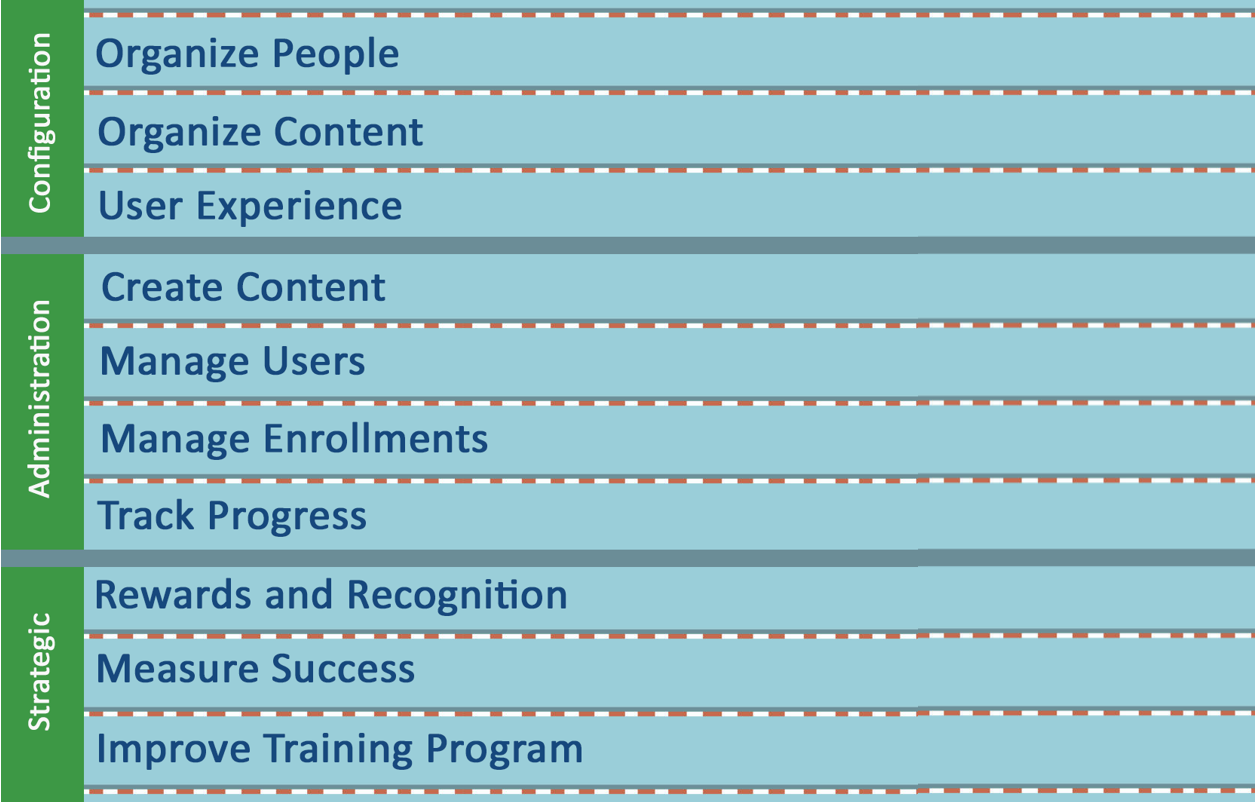Franchisees are independent businesses that operate under the brand and business model of a franchisor. They play a crucial role in expanding a company’s reach by selling and servicing its products or services while maintaining the brand’s standards and values.
The goal of franchise training is to ensure that your franchisees are fully equipped to represent your company’s products or services effectively. The ultimate destination? To align franchisees with the company’s standards, goals, and best practices, enabling them to excel in their roles and contribute to mutual success.
But how does an organization turn this potential into reality? Let’s explore the steps of this journey, from defining the purpose to overcoming challenges and finally reaching the goals.

A successful journey starts with knowing where you want to go. This means beginning with the end in mind. You must first ask yourself: Why are we training franchisees?
The journey will be challenging, with numerous internal stakeholders to satisfy and a variety of franchisees to engage. The road will be filled with obstacles, but a clear sense of purpose—the “Why”—will serve as your compass, guiding you through.
Discover your “Why” in the benefits that franchise training can offer. With a wide range of diverse options available, the benefits you chose to pursue will define your destination and shape the ultimate goals of your franchise training program.

Franchise training ensures that all franchisees and their employees understand and adhere to the brand’s standards, guidelines, and procedures. This consistency helps maintain a uniform customer experience across all franchise locations, reinforcing brand recognition and trust.

Training equips franchisees with the necessary knowledge and skills to run their operations effectively. This includes understanding operational processes, inventory management, staffing, and customer service protocols, which helps franchisees operate more efficiently and reduce costs.

Comprehensive training provides franchisees with in-depth knowledge of the products or services they offer. This enables them to confidently educate customers, handle inquiries, and promote the benefits and features of their offerings, ultimately boosting sales and customer satisfaction.

Franchise training focuses on delivering excellent customer service and creating positive customer experiences. Well-trained franchisees and their staff can effectively engage with customers, resolve issues, and exceed expectations, leading to increased customer satisfaction and loyalty.

Training programs that include certifications, recognition, and incentives motivate franchisees and their staff to perform at their best. Engaged and motivated franchisees are more likely to be committed to the brand, adhere to best practices, and contribute to the overall success of the franchise system.

Franchise training includes education on relevant legal, regulatory, and industry-specific requirements. This ensures that franchisees operate within the law and adhere to safety standards, reducing the risk of legal issues, fines, and damage to the brand’s reputation.

When franchisees are promptly trained on new products, services, or promotions, they can quickly implement these offerings at their locations. This agility allows the franchise system to stay competitive and capitalize on new market opportunities faster.

Training ensures that all franchisees understand the brand’s values, mission, and vision. By consistently delivering on the brand promise, franchisees strengthen the brand’s identity and reputation, contributing to long-term success and customer loyalty.

Ongoing training helps franchisees stay current with industry trends, new technologies, and market changes. This adaptability enables franchisees to respond quickly to customer demands, competitive pressures, and evolving market conditions, ensuring sustained business growth.

Effective training fosters a strong relationship between franchisees and the franchisor. Franchisees who receive thorough training feel more supported and aligned with the franchisor’s goals, leading to better collaboration, communication, and mutual success.

A structured training program is essential for scaling the franchise system and expanding into new markets. By providing consistent training, franchisors can ensure that all franchisees, regardless of location, are well-prepared to represent the brand, operate efficiently, and deliver high-quality customer experiences.

Training helps franchisees develop skilled and knowledgeable staff, reducing employee turnover and fostering a positive work environment. Franchisees with well-trained employees are more likely to retain talent, reducing recruitment costs and maintaining service continuity.

By equipping franchisees with the tools and knowledge needed to operate efficiently, provide excellent customer service, and drive sales, training directly contributes to increased profitability for both the franchisee and the franchisor.

Trained franchisees are more likely to provide valuable feedback on customer preferences, market trends, and product performance. This feedback can inform product development, marketing strategies, and operational improvements, fostering innovation and keeping the franchise system competitive.

Training on safety protocols, risk management, and crisis response prepares franchisees to handle emergencies and minimize risks effectively. This proactive approach protects customers, employees, and the brand’s reputation.
With the destination clearly defined, the next step is to choose your travel companions wisely. Who will join you on this journey? In the context of franchise training, the answer lies in identifying the roles within a franchisees who need to be trained. These franchise staff are your companions on this strategic expedition, and each one plays a vital role in ensuring success.
Now that you’ve chosen your travel companions, it’s time to pack for the trip. But what do your franchisees need to bring along? In this journey, packing means equipping your franchisees with the knowledge and skills they need to succeed.
Each type of franchise learner requires specific knowledge and skills to contribute effectively to the company’s goals, just as each traveler needs the right gear for the journey ahead.

Every journey is fraught with challenges. Understanding the challenges of franchise training is essential to successfully navigating the franchise training journey.
The final step in preparing for the journey is to chart the course—planning how to realize the benefits of partner training. This involves creating a roadmap that integrates the training program best practices to guide your efforts.
As you create your roadmap, determine which stage of partner training will deliver the benefits you seek and identify the best practices within that stage—and any preceding ones—that are needed to overcome the challenges your program faces.
With preparations complete and your roadmap in hand, it’s time to embark on your strategic expedition. A successful journey requires managing numerous workstreams. In the context of training, there are ten primary workstreams organized into three categories: Configuration, Administration and Strategic.
The Configuration workstreams (i.e. Organize People, Organize Content, and User Experience) sets the stage for how you will manage and how your learners will experience your training program. The Administration workstreams (i.e. Create Content, Manage Users, Manage Enrollment, and Track Progress) define the day-to-day operations of your training program. The Strategic workstreams (i.e. Rewards and Recognition, Measure Success and Improve Training Program) enable you to take your training program into the future.
Successfully managing these training workstreams will enable you to implement the selected Best Practices from the Training Program Roadmap and transform your training program into a strategic asset.

With the roadmap in hand and the journey well underway, the final stage is reaching the destination—realizing the benefits of franchise training. At this point, the organization, like a seasoned traveler, emerges stronger, with empowered franchisees who are aligned with its strategic goals.
So, pack your bags, gather your companions, and set out on the journey of franchise training—a journey that promises to be as rewarding as the destination itself.

See for yourself what makes LatitudeLearning stand out. Free 30-day trial includes: